Cases

One of the major contributions of ENCHANT’s composition of the Consortium lies is the participation of 11 non-academic user-partners with direct access to and knowledge of European citizens, members of NGOs and customers of energy companies. This allows the project to investigate people’s energy behaviour across Europe to an unprecedented scope, and in realistic settings, using standard communication channels for distributing the interventions.
The user-partners are fully integrated partners with a dedicated budget in the work packages, and are vital both to refine the ENCHANT consortiums understanding of our research findings, and for reaching our ambitious goal of developing a user-friendly web based tool for actors in the energy field. Both through their very large impact fields as well as through their real life experience and knowledge, these user-partners will complement the consortium’s academic credentials on a number of areas.
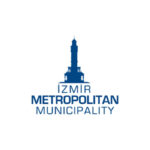
Izmir, also known Smyrna historically, is Turkey’s third largest city and the second most important port city in Turkey. Having a history of 8,500 years and encompassing 3,500 years of recorded urban history, the city is situated by the gulf and is located in the west of Anatolian peninsula. The economically fertile atmosphere stemming from its ports, economic variety, skilled manpower, and its geographic location has turned Izmir into the 3rd largest economy in Turkey. Izmir is vibrant and dynamic – one of the fast growing metropolitan economies in the World.
Izmir Metropolitan Municipality (legal name is Izmir Büyükşehir Belediyesi) holds a very important place in local administration organisation of Izmir, being the third largest city in Turkey with a population of around 4,3 million people. Its area of responsibility encompasses the entire provincial territory, which spans a total area of 12.000 km square, including 30 districts.
Izmir Metropolitan Municipality is responsible for wide variety of areas including; environment, IT, transportation, energy, natural resources supply, infrastructure, planning and development, community services, vocational education, health-wellness, culture, tourism and many more.
Role in ENCHANT
Izmir Metropolitan Municipality is aiming to improve the urban and living standards of the city dwellers and directs its investments and projects in line with this objective. It undersigns a great many urban and social projects for a liveable environment preserving historical and cultural assets, a fast and reliable transport, a well-planned built environment, a working infrastructure, etc. It gives significant importance to environmental sustainability makes a point of improving the quality of life for urban dwellers and therefore, climate change and clean energy are crucial task areas of IMM.
On a policy level, IMM adopted the Covenant of Mayors to reduce CO2 emissions by 20% until 2020 and submitted its Sustainable Energy Action Plan in 2016 to enhance sustainability. Now we are preparing sustainable Energy Climate Action Plan to reduce CO2 emissions by at least 40% by 2030. Within this scope, IMM emphasizes on renewable energy projects and energy efficiency measures on urban transportation, waste treatment, buildings, etc. In addition to the significant investments on these matters, IMM works also on informative activities to raise understanding and awareness among city dwellers on energy and climate change. Apart from these, Izmir Metropolitan Municipality has taking part in several EU and Horizon 2020 projects related to this framework.
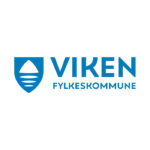 The counties of Østfold, Akershus, and Buskerud formed the County Viken from January 1st, 2020. This is the largest county in Norway with 1,2 million inhabitants and an area of 24 600 km², and surrounds Oslo in the southeastern part of the country. The county is led by the politically elected county council. They are responsible for regional development in the public and private sector, which includes developing regional plans for different sectors (energy, mobility, agriculture, etc), and assisting the 51 municipalities in the county.
The counties of Østfold, Akershus, and Buskerud formed the County Viken from January 1st, 2020. This is the largest county in Norway with 1,2 million inhabitants and an area of 24 600 km², and surrounds Oslo in the southeastern part of the country. The county is led by the politically elected county council. They are responsible for regional development in the public and private sector, which includes developing regional plans for different sectors (energy, mobility, agriculture, etc), and assisting the 51 municipalities in the county.
The county has several established networks and cooperations, including Klima Østfold (multilevel governance including representatives from county council, municipalities, representative for the state), and Klimapartnere (pentahelix cooperation including representatives from municipalities, private companies, NGOs, citizen groups, and academia). The county has public ownership interests in renewable energy production companies such as Akershus Energi and Østfold Energi.
Viken (Østfold) County has since 1994 hosted the INTERREG secretariat for the Interreg Sweden-Norwayprogram, area Grenseløst Samarbeid, and are the Norwegian managing organisation for the Norwegian member-counties of the Interreg Øresund-Kattegat-Skagerak program. Viken is also a member of the Steering Committee of the Interreg North Sea Programme. Østfold County has the last three years implemented a special training programme concerning the Creative Europe Programme, and Viken are now partners of the IN SITU Network and the IN SITU Act project supported by the Creative Europe Programme. Through an initiative by Akershus, Viken are part of the international “Under 2 Coalition”, where regions and cities all over the world aim at reducing the emissions with at least 80 % before 2050.
Through an initiative by Østfold, Viken is in the process of being accepted as a Covenant of Mayors coordinator. Viken County Council is taking part in a large number of international projects, in a wide variety of topics. This includes a large number of Erasmus+ projects initiated by our schools, and about a dozen different Interreg projects. But the county council also has experience from other programs, such as Horizon 2020 and Creative Europe, through projects such as PentaHelix (Multi stakeholder and multi governance approach for SECAP development and implementation (pentahelix.eu)), and BOOST (Building social and emotional skills to BOOST mental health resilience in children and young people in Europe (boostproject.eu)).
Role in ENCHANT
Viken’s main task in the project will be to provide communication channels to its citizens, where the selected interventions will be distributed. They will further be participating in developing and tailor-making the interventions to ensure a contextual fit. The county council and municipalities have established inter municipal climate networks in most parts of the county. One of these networks is “Klima Østfold”, covering the southermost region. Ever since this network was established in 2012, one of the key focus areas has been trying to engage citizens in energy issues. The Klima Østfold and other intermunicipal climate network will play a vital role in ensuring a wide reach for the ENCHANT project, and for dissemination efforts. Viken will also use its expertise in design of communication tool as task leader in WP7.
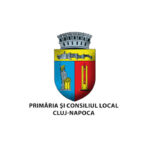
Cluj-Napoca is Romania’s second largest city, located in the center of Cluj County and covers an area of about 180 km2. Specific to the area of Transylvania, Cluj is a multiethnic and multi-confessional city, with a population of 323.108 inhabitants (at 1st of July 2017). Cluj-Napoca has a strong capacity in high-technology business fields and has seen a powerful development of the IT industry. Moreover, the municipality has a number of business parks that are currently developing, a very competitive service industry, including tourism, a finance and banking sector that ranks second after the one in Bucharest, a high number of active SMEs, and a huge volume of investment.
The municipality has emerged over the past years as an important actor in urban energy efficiency by issuing multi-annual integrated energy efficiency plans aiming at increasing energy efficiency across sectors, by establishing a landmark department on energy efficiency within its structure in order to coordinate energy efficiency related projects at the level of the urban area. The department has recently extended its priorities beyond the public administration sector and activities to reach private households. Moreover, the municipality established a city energy auditor position to coordinate energy efficiency processes in local public buildings and services.
Cluj-Napoca Municipality is currently implementing various projects aimed at increasing energy consumption efficiency, innovating energy consumption patterns in the circular economy, reducing the climate impact of energy consumption through energy poverty measures, etc
Role in ENCHANT
Cluj-Napoca Municipality’s main task in the project will be to provide communication channels to its citizens, where the selected interventions will be distributed. They will further be participating in developing and tailor-making the interventions to ensure a contextual fit.

Energie Kompass GmbH has been established by Ing. Andreas Schneemann, MSc. in 2013. As an innovative, service oriented company located in Stegersbach in South-East Austria with a strong focus on the intelligent utilization of renewable energy sources, it offers energy and mobility solutions for companies, regional and communal stakeholders and private households. We provide consulting and engineering services for the usage of climate-friendly, sustainable energy sources such as solar power, photovoltaic, wind energy in combination with intelligent building management systems to reduce energy consumption and improve the ecological footprint of our customers. We provide concept studies, basic and detail engineering as well as turn key projects for photovoltaic plants and photovoltaic parks for private, communal and commercial use. Energie Kompass GmbH is also an E-mobility service provider that operates EV charging infrastructure in south-east Austria and provides consulting services for municipalities and companies for the development of appropriate E-mobility solutions. Specific skills within Energie Kompass GmbH are engineering and planning (electric engineering, PV planning, HVACR engineering) as well as energy consulting for private and public sectors.
Innovation, research and development is also a core topic in Energie Kompass’ operations with it being the hosting organization of the Innovation Lab act4.energy, a living lab initiative that is also supported by 10 adjacent municipalities in a private-public partnership (Bocksdorf, Burgauberg-Neudauberg, Kemeten, Kukmirn, Litzlsdorf, Olbendorf, Ollersdorf, Oberwart, Rauchwart and Stegersbach). The goal of the innovation lab is the development of innovative, cross-sectoral system solutions for integrated renewable energy systems. Main activities include research and innovations in the fields of PV – self consumption, renewable energy communities, sector coupling in regional energy systems and e-Mobility solutions.
Role in ENCHANT
Energie Kompass GmbH’s main task in the project will be to provide communication channels to its customers, where the selected interventions will be distributed. They will further be participating in developing and tailor-making the interventions to ensure a contextual fit.

NSCN was founded in 1914 and is Norway’s oldest nature and environmental organization. It is a democratic member organization with more than 30 000 members in around 100 local branches throughout the country. The organization works with a wide range of issues in environmental and nature protection, but particularly in the areas of nature protection, climate, energy and transport.
Although NSCN has a national agenda, many environmental questions have proven to have an international or even global character. Issues concerning development, resource allocations and international cooperation are very much part of NSCN’s everyday activities.
Role in ENCHANT
NSCN’s main task in the project will be to provide communication channels to its members, where the selected interventions will be distributed. They will further be participating in developing and tailor-making the interventions to ensure a contextual fit.
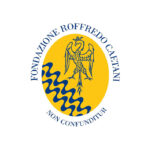
The Fondazione Roffredo Caetani (Roffredo Caetani Foundation) operates in the Lazio Region, about 80 km south of Rome, in a vast territory that covers many municipalities, and has its main administrative offices in the historic buildings of Tor Tre Ponti, along the Via Appia, six km east of the city of Latina. Thus, the main geographical entity in which it operates is the southern rural part of the Lazio region and Rome outskirts. The Foundation’s Statute sets out its general aims as follows: “to honour and perpetuate the memory of the noble Caetani family and to continue the social and educational work begun in the Castle of Sermoneta by Donna Lelia Caetani’s father Roffredo Caetani, Duke of Sermoneta, and by her mother Marguerite Caetani”.
Thus, the main mission of the Fondazione Caetani is to manage the relevant heritage left by the Caetani family through the centuries, and in particular by managing activities related to the Giardino di Ninfa (Ninfa Garden) and the Sermoneta Castle. The Ninfa Garden is one of the most important touristic hotspots in Italy (the garden and the castle had had more than 100.000 visitors in the year 2018). In parallel, the Fondazione also owns and manages the Pantanello Park, an area of some 100 hectares, that was designed to recreate the conditions that pertained prior to the reclamation of the Pontine marshes in the early 20th century. The Pantanello Park performs an educational role, through study programs, environmental monitoring and the study of wetland ecology carried out in collaboration with schools and research institutes. Since many years it also hosts an extensive outdoor education program dedicated to school children living in the territory area, which has reached relevant numbers so far, with several hundred children involved every year.
Role in ENCHANT
Fondazione Roffredo Caetani’s main task in the project will be to provide communication channels to its visitors, where these selected interventions will be distributed. They will further be participating in developing and tailor-making the interventions to ensure a contextual fit.

The Center for the Study of Democracy is a think-thank founded in 2006 by the Faculty of Political Science at Babeș-Bolyai University in Cluj, Romania. The Center engages in research projects and analyses from a comparative perspective with a solid practical component on issues such as: energy policy, democratization, migration, ethnicity, civic education, electoral behavior, and institutional design. Furthermore, CSD engages in policy-making and awareness raising. Collaborations reach institutions such as the Presidential Administration, the Romanian Parliament, local administrative institutions and organizations within civil society.
CSD’s research team gathers professors and researchers from the Political Science Department at BBU, from other departments, as well as from partner universities abroad. Association Center for the Study of Democracy (ACSD). Due to the growing network of collaborators and partners within the civil society, the Association was created under the Romanian Law in October 2012. The association’s activities complete the ones developed by the center, through applied research projects and collaborations with other NGO’s sharing similar interests, such as education or the promotion of democratic values. One of the most dynamic fields of activity concern energy policy, mainly related to energy poverty, efficiency and climate impact.
Currently, the organization is implementing the project “Mitigating GHG emissions through energy poverty alleviation in Romania”, aiming to understand the nexus between consumer behavior, energy poverty and climate change, at the level of the Metropolitan Area Cluj-Napoca, in cooperation with the local municipality and other relevant market actors. Through the project theorganization has achieved access to a diverse set of actors relevant to the ENCHANT project: privateconsumers, energy providers, local administration, NGOs, etc.
Role in ENCHANT
ACSD main task in the project will be to provide communication channels to its citizens, where the selected interventions will be distributed. They will further be participating in developing and tailor making the interventions to ensure a contextual fit.
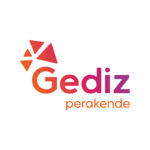
Gediz Elektrik Perakende Satis AS is a branch of Bereket Energy Group, serving 4.7 million customers. It was established in 2013 with the purpose to provide sustainable, qualified and low cost electricity service to its customers in İzmir and Manisa. Gediz Electricity Retail Sales Corporation pays utmost respect to the satisfaction of its consumers, with its powerful stance sustaining its existence in fair competition environment by contributing to energy market, and it provides electricity in Aegean Region of Turkey through bilateral agreements to eligible consumers.
Role in ENCHANT
Gediz Elektrik Perakende Satis AS’s main task in the project will be to provide communication channels to its customers, where these selected interventions will be distributed. They will further be participating in developing and tailor-making the interventions to ensure a contextual fit.

Energia Positiva is an energy cooperative founded at the end of 2015 in Turin, Italy. In four years of activity it was able to aggregate around its sharing-energy-production model over 400 citizens, from which it raised 4.7 million euros, in order to purchase 15 renewable energy production plants and develop 3 energy-efficiency related projects. Its main objective is to “open” the sector of environmental sustainability to citizens and small savers, offering them the chance to become producers and consumers of renewable energy (prosumers), sharing the ownership and the economic results of the plants acquired with its members, distributed on the national territory. The members, by joining Energia Positiva, can create their own “virtual” renewable plant in order to directly reduce the annual cost of their energy bills.
Role in ENCHANT
Energia Positiva’s main task in the project will be to provide communication channels to its customers, where these selected interventions will be distributed. They will further be participating in developing and tailor-making the interventions to ensure a contextual fit.

Electrica Furnizare SA (EFSA), as a subsidiary of the Electrica Group, is the leader in the electricity supply market in Romania, with a tradition of over 120 years in the energy field and having a portfolio of over 3.5 million customers. The company stands out through a good knowledge of the consumption characteristics, a modern infrastructure and staff ready to provide quality services to its customers. EFSA holds the right to carry out the activity of supplying electricity and natural gas throughout the country, regardless of the area distributor.
Role in ENCHANT
EFSA’s main task in the project will be to provide communication channels to its customers, where these selected interventions will be distributed. They will further be participating in developing and tailor-making the interventions to ensure a contextual fit.
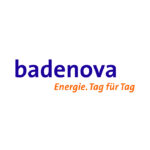
Badenova is a mid-sized German public utility and service provider and a leading company within the Thuega-network (that integrates more than 100 public utilities). It plans, builds and operates energy conversion installations such as wind turbines, biogas plants, PV-systems and combined heat and power plants. Its subsidiary “bnNETZE” operates a power, gas and water distribution network in the Freiburg region. With its own energy trading team, badenova offers special energy solutions for tenants and villages (“Mieterstrom”, “Dorfstrom”). Via Syneco, the common energy trading company within the Thueganetwork (with over € 3 billion in revenue and 60 employees), badenova has access to energy exchanges, balancing markets as well as portfolio and risk management.
The close co-operation of badenova with communities in the region leads to a long-term experience in local stakeholder management and resident activation for renewable electricity projects. Further, badenova supports its municipal shareholders in the “Energiewende” (transition towards a sustainable energy system) with innovative and sustainable solutions. The company focuses on decentralized, sustainable concepts and renewable resources, and – with increasing extent – on services to help clients increase efficiency and sustainability of their energy demand. In addition to smart home components, badenova offers end-customers PV systems, battery storages, and wall boxes for electro mobility.
Via the Thuega-network badenova co-operates with similar public utilities, both to give badenova access to innovation and services of its partners and to multiply and deliver own experiences to the partners. In recent years, badenova has carried out several projects with funding from the EU or from the federal government respectively the state of Baden-Württemberg.
Examples include the project “Industry on Campus” with the University of Applied Sciences Offenburg (funded by the state of Baden-Württemberg with € 5 million, funding objectives: optimization of energy production from biomass, energy storage), project “Vernetzte Industrie” (ERDF funding € 2.5 million), INVADE (EU Horizon 2020 with € 16 million over all) and FLEXGRID (EU Horizon 2020 with € 2,8 million over all).
Role in ENCHANT
Badenova’s main task in the project will be to provide communication channels to its customers, where these selected interventions will be distributed. They will further be participating in developing and tailor making the interventions to ensure a contextual fit. Through badenova, the city of Freiburg is involved in the project and badenova will coordinate their work.
(In addition, Badenova also brings into the Consortium two sub-contracted actors, Freiburg City and Climate Partners Upper Rhine Valley).
